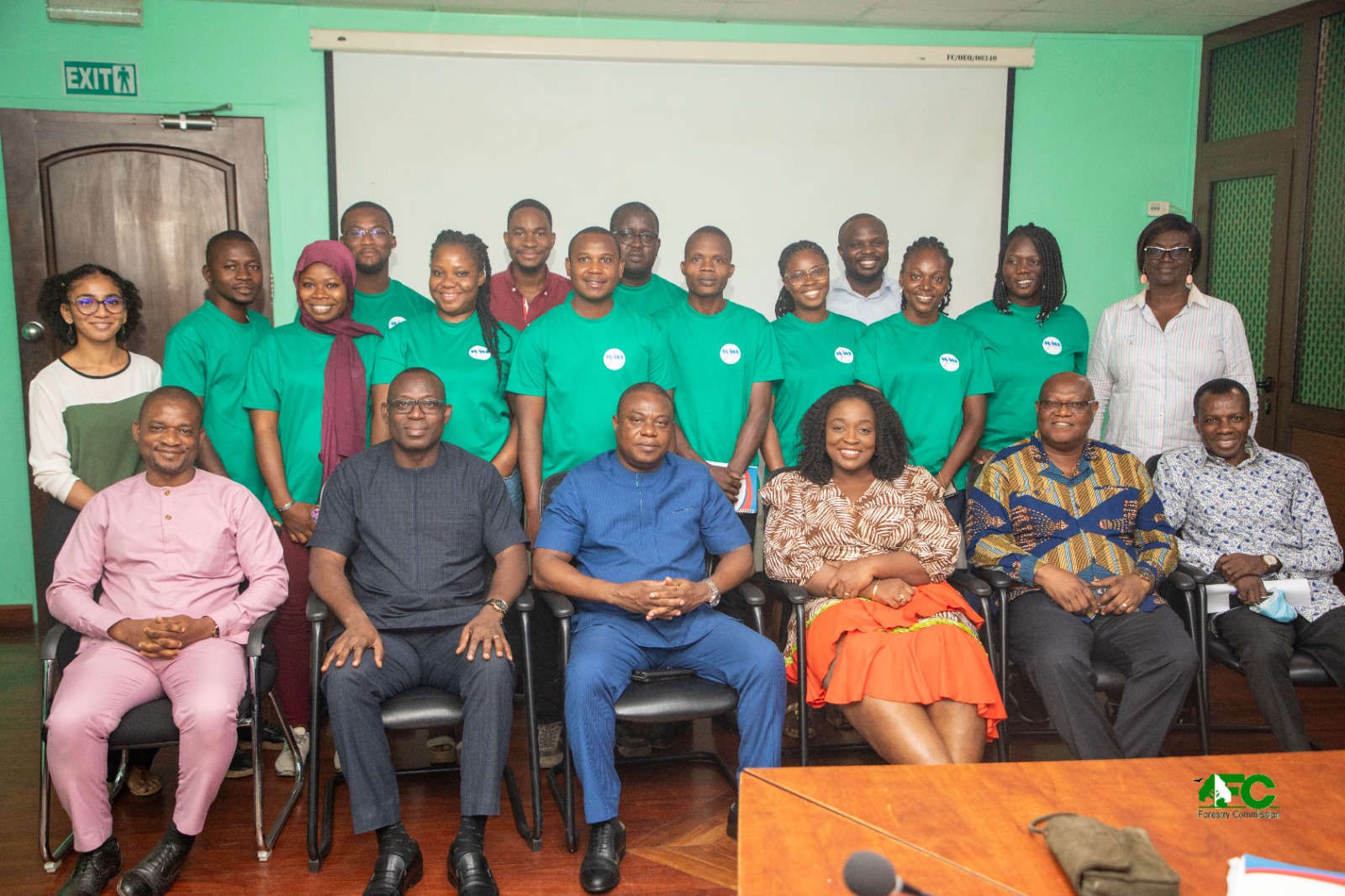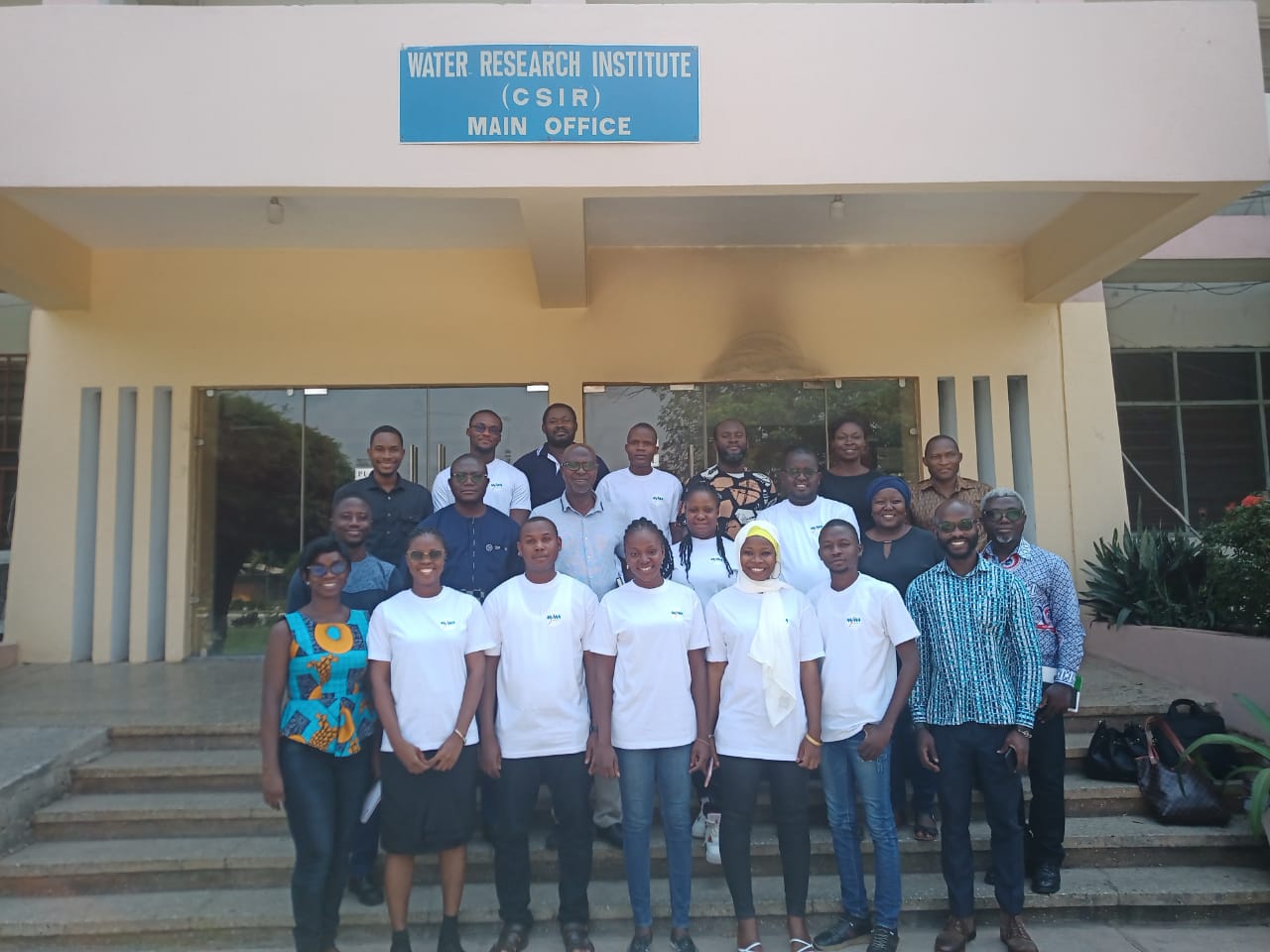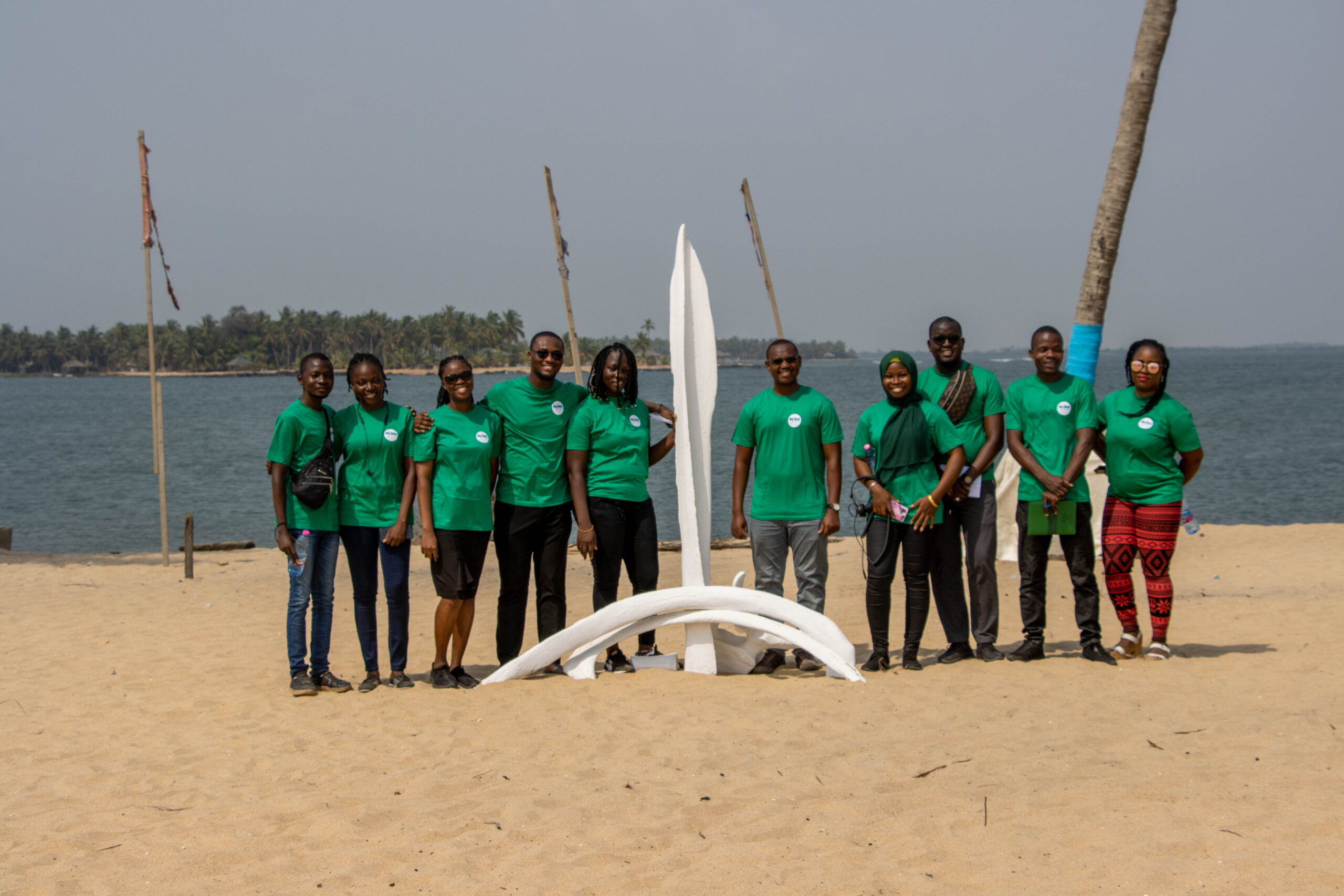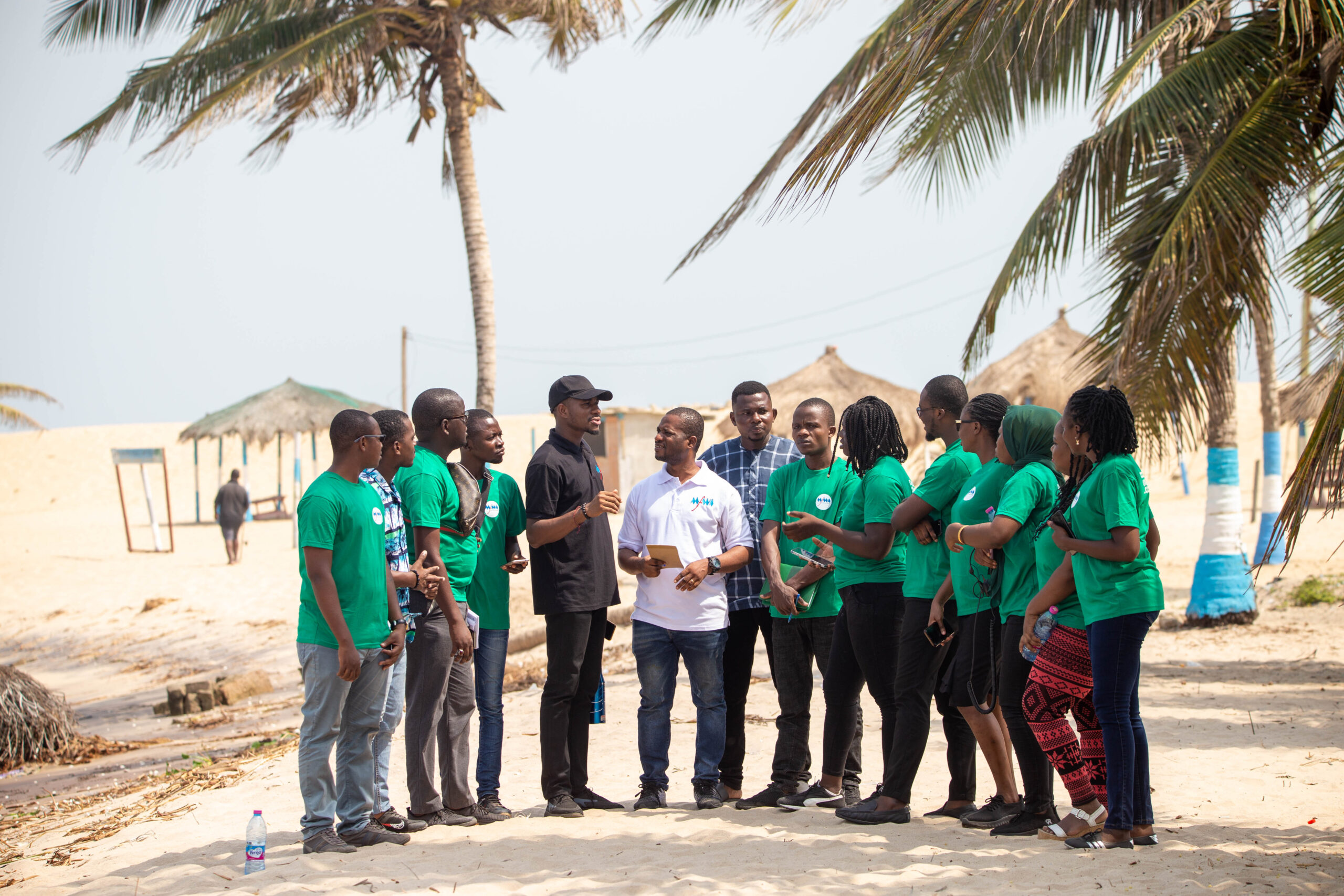In the last three months, ten buoyant journalists from ten (10) West African countries have been participating in a 5-month Climate Change Journalism Fellowship programme.
The programme, hosted by the Media Foundation for West Africa (MFWA), aims at promoting climate change awareness and responses through increased and quality media reporting and public education on the ongoing climate crisis and its related effects across West Africa. The ten journalists are from Mali, Cote d’Ivoire, Burkina Faso, Niger, Guinea, Nigeria, Senegal, Togo, Benin and Ghana.
Key Fellowship activities include training workshops and seminars; institutional and site visits/tours; speaking engagements with high-profile industry personalities; mentorship story productions and some recreational activities. The programme is running from November 2022 to March 2023.
Training Workshops
Since its inception in November 2022, the Fellows have and continue to receive intensive practical training sessions and mentorship on climate change and its adaptations within different thematic areas. These are complemented by training workshops in Fact-Checking; Investigative Journalism and basic multimedia and mobile journalism. Fellows will also be taken through how to use the access to information laws in their respective countries to access important datasets that can serve as the basis for quality stories on climate change for in-country and cross-country story production.
“Getting logistics from newsrooms to produce stories can be quite hectic. But this mobile journalism training has opened my eyes to learn that I can equally produce good and quality field reports with a good camera,’’ Emmanuel Bright Quaicoe, a fellow from Ghana shared his excitement after the MOJO training
Madina Belemviré, the fellow from Burkina Faso, also said “This training has been really beneficial for me, being an online journalist, it is my first time to discover Open Camera and Lexis Audio Editor. This training has equipped me with new techniques which will allow me to offer quality videos to my media house’’
Institutional visits
So far, fellows have visited and engaged with experts in key Ghanaian climate change and environmental science and technology institutions such as the Forestry Commission, Water Research Institute, Africa Centre for Energy Policy and the Noguchi Memorial Institute. These visits continue to expose the fellows to real-time practical
knowledge and experience of the work of these institutions in relation to climate change. For instance, at ACEP, the conversations focused on energy transitions to cleaner and more efficient options, solar PV value chain, and climate change Finance in Africa.
Also that the Forestry Commission, Ghana’s statutory body that regulates the use of forest and wildlife, Fellows picked up insights on Ghana’s Reducing Emissions from Deforestation and forest Degradation (REDD+) Strategy. The visit enlightened the fellows on how Ghana through the Commission is working to protect its forest and wildlife while enabling carbon stock enhancement through sustainable forest management and forest restoration strategies such as forest plantation establishment.
After the meeting, the fellow from Benin, Fulbert Adjimehossou, said the engagement has prompted him to pay close attention to similar projects in his home country.
“Partaking in the Visit to the Forestry Commission allowed me to reflect on what is being done in Benin to ensure that mangrove populations can also benefit from the carbon market, given that mangrove can absorb up to 500 tonnes of CO2’’, he said.

The visit to Noguchi exposed participants to the works of this pillar of science and technology in West Africa and diseases exacerbated by climate change such as neglected tropical diseases (NTDs).
“The visit to the Noguchi centre was very interesting knowing their involvement in checking the toxicity of traditional products in collaboration with traditional therapists. Upon my return to Guinea, I plan to probe to see the initiatives taken by the government in this regard,” said Aissata Sidibe, a fellow from Guinea.
At the Water Research Institute, the experts presented the impact of climate change on water and Sediment in the Volta Basin, and its effects on hydro-physical and ecological dynamics of lake volta, world’s largest artificial reservoir based on surface area, among other things.
The visit was certainly enlightening for Janet Ogundepo: “I understood the impact of climate change on water. From the research they conducted in the Volta Region in Ghana, I found some similarities between Ghana and Nigeria. I was really interested especially in community-based solutions to mitigate the effects of climate change, which is encouraging especially when we know that some governments do not do much to help some communities.’’

Site Visits
The fellows have also visited some waste recycling plants and Ramsar sites. In relation to issues of coastline communities and sea erosion, Fellows visited the Ada Estuary, at Azizanya village in the Ada East District, one of the places affected by sea erosion in the Greater Accra region of Ghana. They observed with worry how the Volta River has gradually eaten into portions of community land, drawing the residents much closer to the river at the risk of being wiped out.
“I just couldn’t believe my eyes when we were shown the rubble of a building which once served as a kitchen for a beach camp resort in the community,’’ Emmanuel Bright Quaicoe bemoaned.
Nana Samake, a fellow from Mali said, “Knowing from the tour guide that the community loses 1.5km annually to the sea was shocking. That means with time, a lot of people will be displaced- a similar problem I can relate to from my country. ’’


The MFWA’s Programme Manager for Media and Good Governance, Abigail Larbi Odei, said the Climate Change Journalism Fellowship is meant to contribute to increasing public knowledge and awareness of the different manifestations of climate change and its dangers to everyday life, the environment and society as a whole.
“Climate change has become a major global concern. Sometimes people are not even aware how their actions and choices contribute to the challenges of climate change let alone what to do to mitigate them. This is where quality journalism becomes critical for the region in terms of aspirations to stem the ongoing climate crisis and its related effects across West Africa. We believe this initiative will help grow a pool of dedicated West African journalists who would have the relevant knowledge and skills for producing critical, fact-based, and in-depth reports on climate change-related issues.
The maiden edition of the MFWA’s Climate Change Journalism Fellowship is supported by the DW Akademie. The fellows were selected through a competitive application process including interviews. At the end of the Fellowship, each Fellow is expected to produce at least two compelling stories on climate change-related issues that exist in their respective countries, and at least one cross-border story by all Fellows. They will also receive a certificate of participation.
